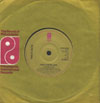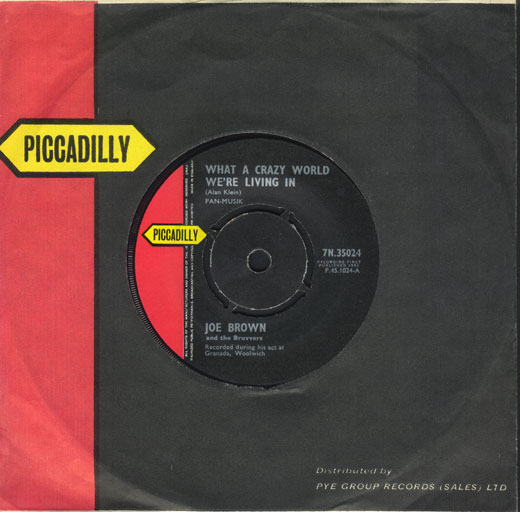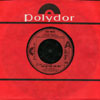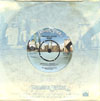|
 -
company sleeves from the 50's to the 80's -
company sleeves from the 50's to the 80's
Click on the images to see a larger version. My comments are bound to be incorrect in places, so please send me
corrections or more info if that's the case. Keep checking back regularly for updates and more scans.
Please do not directly link to these images for your own pages; it won't work.
You require my advance permission to use them; please contact me to make arrangements. The artwork remains copyright of the record company.
Page 6 (Philadelphia to Private Stock)
(Previous page) (Back to index) (Next page)
Philadelphia
Kenneth Gamble and Leon Huff's Philadelphia International record label had its own outlet in the UK. The label's distinctive lush orchestrated sound of records from artists like Billy Paul, the O'Jays and the Three Degrees earned them the tag "Philadelphia Soul".   | | This is the standard green Philadelphia sleeve: the most notable thing is that it opens at the side, not the top! |
Philips
Like many audio equipment manufacturers, Dutch giant Philips also made their own records. Their UK operation started by releasing CBS product from the States, so from the late 50s, you'll find country legends like Johnny Cash, Frankie Laine and Jimmy Dean on the label. Later on, hits came from Dusty Springfield, the Walker Brothers and Marty Wilde. The label was phased out in favour of Fontana, and following later merger activity, displaced by the likes of Polydor. .jpg) .jpg) | | From 1962, Philips releases were found in a very thin sleeve with this plain white-and-blue design. |
.jpg) .jpg) | | Before Fontana had its own separate identity, it shared this thick, off-white sleeve with Philips. |
Piccadilly
Parent company Pye started Piccadilly around 1960 as a subsiduary for some of its slightly less mainstream talent. From the Liverpool folk of Dominic Behan to the skiffle-influence pop of Jo Brown (and his Bruvvers), the label had an interesting roster of UK artists. Groups appearing on Piccadilly included The Ivy League (a vehicle for John Carter and Ken Lewis - see also The Flowerpot Men and The First Class) and the Rockin' Berries.   | | A simple black and red design, with the bold black-on-yellow Piccadilly lozenge logo. What makes it particularly effective is the way the label repeats the same design. (An interesting single, too: a live Joe Brown performance, straight out of the Lonnie Donegan book of skiffle.) |
Polydor
German record company Deutsche Gramophon set up Polydor as its non-classical label. This explains the strange releases through to the mid-60s : Germanic folk, light novelty classical records and the like. Things rapidly got more serious when Jimi Hendrix and the Bee Gees were signed to Polydor, and then through the 70s, the label flourished courtesy of James Brown, Slade and the Jam. Polydor retained its identity despite several changes of parent company and is still an active part of Universal Records today.   | | This must be the longest-lasting sleeve design of them all: this red Polydor bag remained essentially unchanged from its introduction in the early 60s all the way through to the phasing out of company sleeves for picture sleeves in the late 70s. |
Private Stock
A small disco-oriented label that was started in 1974, Private Stock released singles from the likes of David Soul, Michael Zager Band and, less typical of the house style, some of Blondie's first records.   | | From the mid-70s, this Private Stock sleeve and label depicts the New York city skyline as viewed from Brooklyn, shortly after the WTC towers were built. |
(Previous page) (Back to index) (Next page)
|








.jpg)
.jpg)
.jpg)
.jpg)





